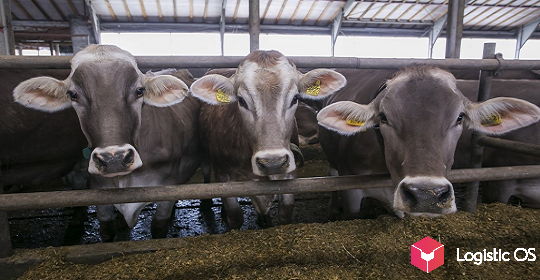Currently, a new variety of rapeseed is being tested in the Middle Kingdom, which can grow in winter. Canadian canola exporters are worried about this.
On December 24 last year, Chinese leader Xi Jinping at the Rural Labor Conference in Beijing proclaimed the country’s food independence course.
In particular, they discussed the reduction of imports of oilseeds, as well as the diversification of supplies in order to be less dependent on «unfriendly» countries — for example, North American ones, and instead shift the focus to the BRICS countries — Brazil, Russia.
All this cannot but worry Canadian farmers, including oilseed producers.
For example, this season, China has already bought up to 2 million tons of canola (an oilseed) from Canada, which is half of Canada’s total exports.
Already, the farmers of this country are beginning to look at other markets. After all, another threat looms on the horizon — a new variety of «winter» rapeseed is being tested in China.
What are the features of the new variety?
The peak of agriculture in China, as elsewhere, falls on the summer.
It was during this period of the year that the fields were sown with rice. Then, after harvesting, the fields are empty until the next season.
However, Chinese scientists are now testing a new variety of rapeseed that will be able to occupy empty fields just in the cold season. This wonderful variety has many advantages:
— frost resistance
— short growing season
— high productivity
In other words, rice cultivation will not be affected in any way, and between harvests a large amount of rapeseed can be harvested from the same field.
By the way, this is the main oilseed crop in China: residents are actively buying rapeseed oil, just like Russians are buying sunflower oil.
Growing rapeseed in winter has many additional benefits.
For example, at this time, weeds, diseases, pests “sleep”, so it will be possible to achieve a good harvest without the high cost of treating fields with various chemicals.
China plans that thanks to a new variety of rapeseed, which is now undergoing almost the last tests in Jiangxi province, China’s own supply of oilseeds can be increased from 30% to 42%, which is a very significant step forward.
In general, we can talk about the fact that Chinese farmers will be able to receive up to 11 million tons of rapeseed annually, and even more in the future.
After all, the areas of fields idle in winter are practically endless.
Among other things, this will provide a crop rotation so that the rice field can be sown with rice for a long time.

